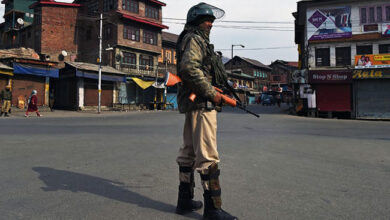A Diphtheria Dilemma?

A global shortage of the antitoxin used to treat highly contagious diphtheria could trigger an ethical dilemma for health providers in Bangladesh’s Rohingya refugee camps. There were more than 2,400 suspected cases of diphtheria in Bangladesh as of 25 December — but only 5,000 vials of antitoxin available anywhere in the world, according to Médecins Sans Frontières. “There is not enough of the medication to treat all of the people in front of you who need it and we are forced to make extremely difficult decisions,” Crystal van Leeuwen, MSF’s emergency medical coordinator in Bangladesh, said on the aid group’s website. “It becomes an ethical and equity question.” Early cases of diphtheria were spotted in November but there were no available antitoxins in southern Bangladesh’s Cox’s Bazar district, where nearly one million Rohingya refugees are now clustered together in haphazard camps and settlements. World Health Organization officials had to hand-carry the first available doses from Delhi in December. There are now about 1,300 vials of the diphtheria antitoxin available in Cox’s Bazar, according to the WHO. Fuelled by low vaccination rates, extreme overcrowding and poor sanitation, the sudden re-emergence of diphtheria in Bangladesh followed years of decline: there were only two reported cases in 2016.
Read more: IRIN, http://bit.ly/2lvUQwy





